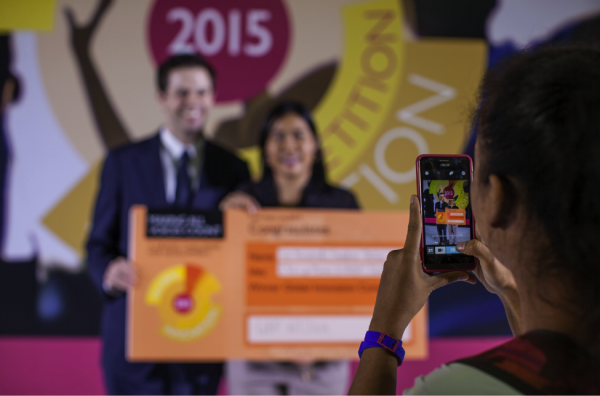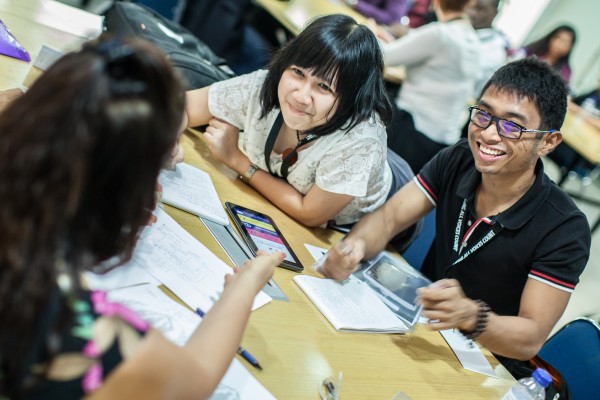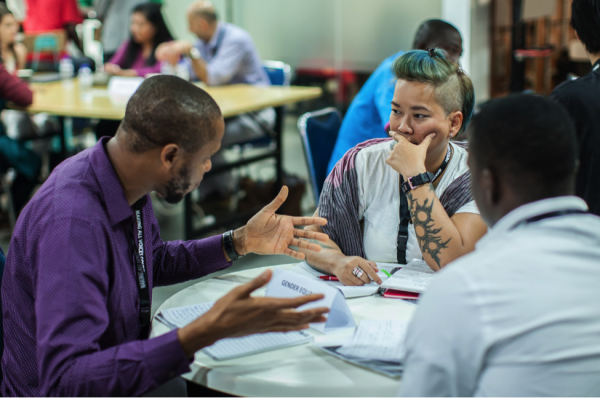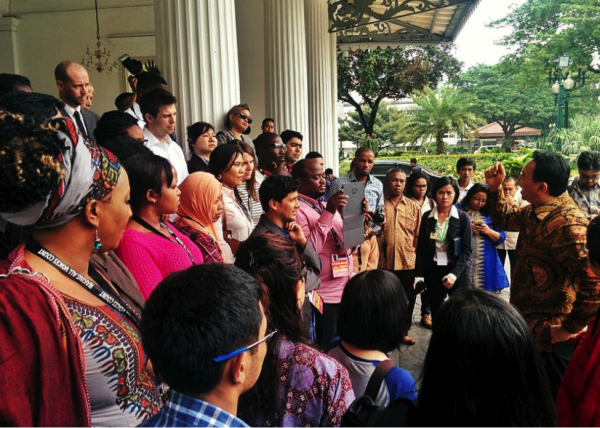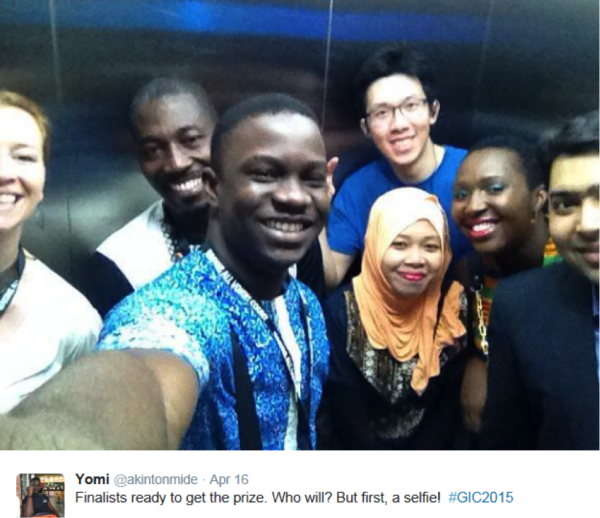Earlier this month, we announced the winners of the Global Innovation Competition 2015, chosen from hundreds of innovators across the globe who are using innovation to support good governance.
In this blog, Programme Officers Melissa Mbuga, Monica Nthiga and HyshyamaHamin reflect on the unique Global Innovation Competition Week in Jakarta, which brought the ten teams of finalists together for four days of work with expert mentors ahead of the final night of competition.
Hosting finalists from Indonesia, Bangladesh, Kenya, Mozambique, Ghana, Pakistan, Philippines, Nigeria and South Africa, the final week of the Global Innovation Competition was a reminder of the need to explore new ways to support and learn from these diverse teams applying innovation and technology to governance issues.
During the week, the finalists worked with mentors, pitched their ideas to each other and guest judges, and took part in Jakarta government meetings. Each of these activities gave the finalists something new to think about, and they also provided the Making All Voices Count team with insights into how we can work more innovatively ourselves, and perhaps provide lessons to other global competitions supporting development.
The power of mentoring
Finalists at the Global Innovation Competition were matched with mentors who discussed their technology tools, plans for engagement with government, research, communications and the inclusion of minority groups.
The aim of the mentoring was not only to ensure projects are more likely to win a grant – it was not an opportunity to impress the competition jury – but also help them to achieve the greatest impact possible.
We believe that mentoring supports collaborative learning and the honest hashing out of doubts and questions that are too often hidden in a process that is entirely competitive – and we asked the finalists to share their thoughts on their experience of it:
“It’s really important to peek into the minds of experts and find out how they think and how do they evaluate ideas” – Fayyaz Bhidal
“Other competitions only want to hear about success – so when you have a competition like this that cares to learn more about your weaknesses and the honesty that goes into your projects, this helps improve it exponentially” – Di Luong
Take every opportunity to learn
A popular phrase during the week was that ‘no-one has a monopoly on good ideas’ – and holding the competition in Jakarta was an opportunity to learn first-hand what might be possible for our finalists.
We attended Jakarta’s public city planning meeting, and spoke with the Governor and his team about the online Smart City platform, which allows anyone to log issues onto a public map and track when and whether issues are solved.
We got an insight into a government agency proactively using innovation to address the problems of ordinary people – and all left discussing whether this could be adapted, scaled and adopted in any of the other countries we work in.
And this, all from what might have seemed, at the outset, like a long and boring planning meeting…
Feedback is important for everyone, including us
During the closing conversation with the finalists, there were many learning points for our programme on how to keep improving the Global Innovation Competition.
Finalists asked for more formal opportunities to talk through and critique each other’s ideas – a lesson us to structure this into the next competition and not assume these naturally arise.
This year, having learned lessons from the first Global Innovation Competition, we tried to make the application process simpler, but our finalists urged us to go further. We discussed ways to make applying easier, balancing our desire to get the best ideas with the willingness to be open to unusual suspects, who may have poor access to internet or limited English.
Throughout the week, we were constantly reminded that although our backgrounds, experiences and languages are different, we all strive for the same thing – better communities, countries and governance for all. Our experiences are richer and our own collaborative muscle strengthened as a result of interacting with these amazing innovators. We thank all our finalists for sharing their ideas and learning with us.
